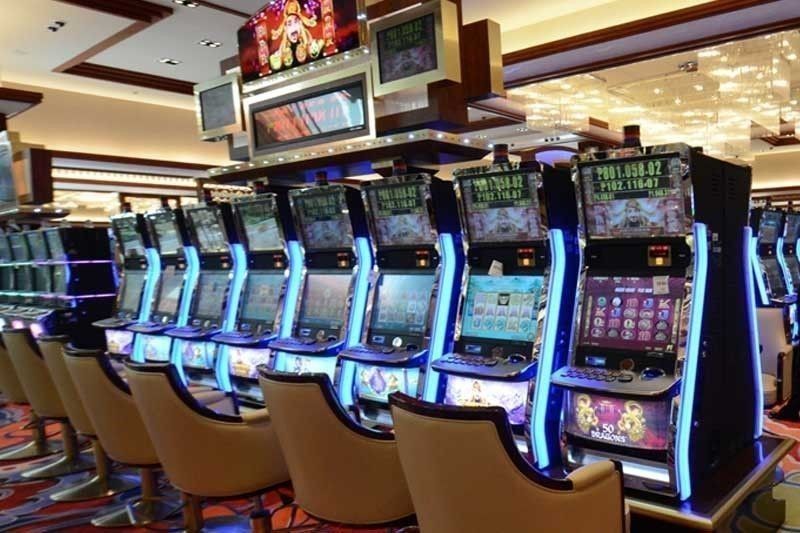Palace backs DOF on POGO tax

MANILA, Philippines — Malacañang sided yesterday with the Department of Finance (DOF) on the issue of taxing Philippine offshore gaming operators, saying technicalities should not prevent the government from collecting revenue from POGOs.
The Office of the Solicitor General (OSG) previously said foreign-based POGOs whose income source is mainly overseas could not be taxed.
A gaming operator earns from bets placed by its registered foreign subscribers even if it employs a service provider based in the Philippines, the OSG said.
The operator’s income is the placement of bets on its online betting facility, which come from sources outside the Philippines, it added.
But the DOF disagreed, saying POGOs are subject to income tax because they provide services to their counterparts in the country.
The agency cited an opinion of the Bureau of Internal Revenue (BIR), which stated that the situs of income is where the services are rendered.
Presidential spokesman Salvador Panelo echoed the DOF’s statement, noting that the agency has the mandate to formulate, institutionalize and administer fiscal policies in coordination with other concerned government entities.
The discretion of the DOF and BIR “carries significant weight on matters of taxation,” Panelo said.
“With this, we trust that the DOF, together with the BIR, has the competence to evaluate the respective charters and operations of these entities in order to subject them to Philippine taxes in accordance with the law,” Panelo said.
“While the matter is being studied by the DOF, what is clear is that the state cannot be denied its right to collect all applicable taxes on any entity or individual,” he added.
Panelo said the salaries of POGO workers are considered taxable income under Section 23 (A) and (D) of the tax code.
“For POGOs that are domestic corporations, they are covered by Section 23 (E), Chapter II of the National Internal Revenue Code (NIRC) and their income must be subjected to Philippine taxes regardless of whether the same was derived from a source outside of the Philippines,” Panelo said.
POGOs considered as foreign corporations are also taxable but only for income derived from sources within the country. This is pursuant to Section 23 (F), Chapter II of the NIRC, he added.
Panelo said the OSG’s opinion was issued in response to a query from an official of the Philippine Amusement and Gaming Corp. (Pagcor) and is “subject to change, depending on the elaboration of factual circumstances.”
The gaming regulator expects to collect P10 billion in license fees from POGOs next year.
In a clarificatory letter sent to The STAR, the OSG cited the difference between “local-based POGOs” meaning Philippine-based, and “foreign-based POGOs” or offshore-based companies.
“In any case, there is nothing in the legal opinion that states or even infers that all POGOs and their employees cannot be taxed,” the letter from OSG said.
It further stated that “an offshore-based operator strictly and exclusively deriving income from sources outside the Philippines is not subject to tax based from the source principle.”
The OSG also deferred to the BIR as the agency vested with the power to interpret tax laws.
NEDA backs taxing POGOs
The National Economic and Development Authority (NEDA) yesterday expressed support for taxing POGOs as a measure subjecting the industry to franchise and withholding taxes has passed the committee level in Congress.
The ways and means committee approved on Monday House Bill 5267, seeking to require POGOs to pay a five percent franchise tax and 25 percent withholding tax for foreign workers earning at least P600,000 annually.
“We will have to tax POGOs. That’s about P45 billion in revenue take. It’s not coffee money,” said Socioeconomic Planning Secretary Ernesto Pernia.
The bill seeks to amend Presidential Decree 1869, the law covering the powers of Pagcor by directly imposing a franchise tax on the P200-billion POGO industry.
Currently, Pagcor collects a regulatory fee of only two percent on POGOs or P8 billion per year, and plans to remit only P400 million to the BIR.
The proposed law intends to directly impose a franchise tax on POGOs by requiring them to register with the BIR first before they are given a license by Pagcor to operate.
‘150,000 POGO workers not paying taxes’
It’s not only the POGOs but their employees as well who are not paying local taxes, the chairman of the House of Representatives committee on labor and employment said yesterday.
Rep. Enrico Pineda of 1-Pacman party-list said the 60 POGOs licensed by Pagcor employ 160,000 personnel, mostly Chinese.
“Of these, only 10,000 are registered with the Bureau of Internal Revenue and have been issued tax identification numbers. The 150,000 do have have TINs,” Pineda said.
He said those who have TINS are presumably paying income tax, while those without are not paying tax.
He added that his information came from no less than Labor Secretary Silvestre Bello III.
Pineda revealed that each Chinese POGO worker is paid P80,000 a month.
Albay Rep. Joey Salceda, who chairs the House committee on ways and means, has filed a bill to impose a five percent franchise tax on POGOs and a 25-percent income tax on their foreign workers.
If Pineda’s figures are accurate, the combined earnings of 150,000 Chinese POGO workers would amount to P12 billion a month or P144 billion per year. If a 25-percent income levy were imposed, at least P36 billion would be collected from POGO employees.
In an interview on ABS-CBN News Channel, Salceda said there are 119,000 Chinese workers with alien employment or work permits from the Department of Labor and Employment.
“They are working here, so they should pay 25 percent tax. Filipinos working in China are paying 25 percent,” he said.
He said POGOs have nowhere to go but the Philippines because they are banned in other countries in the region. – With Jess Diaz, Czeriza Valencia
- Latest
- Trending































